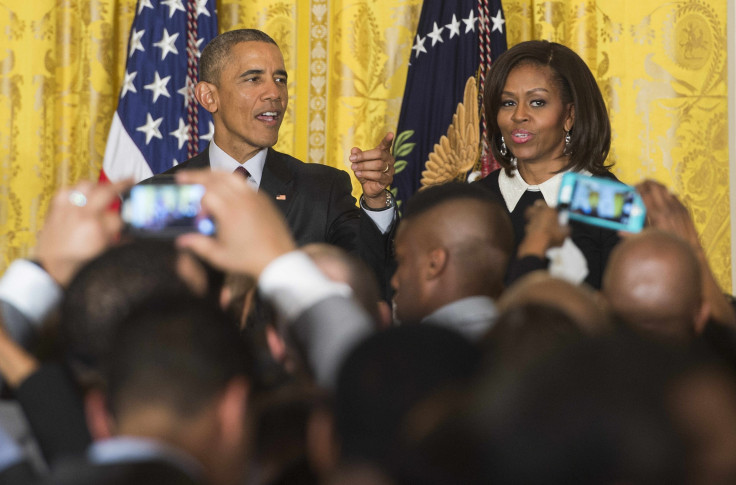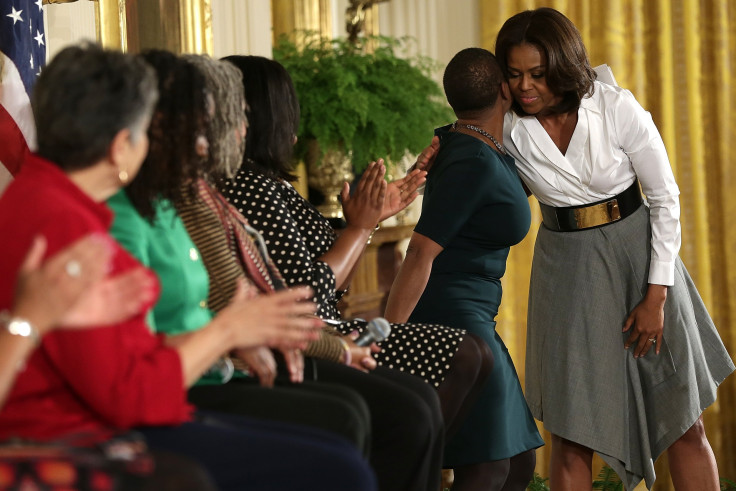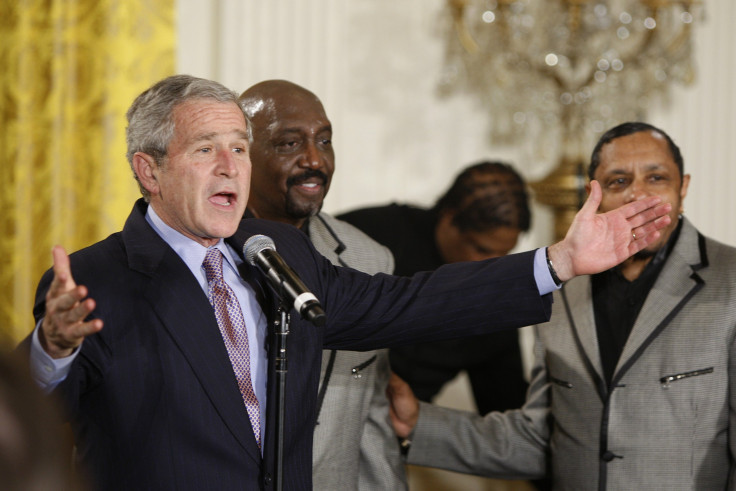Black History Month In The White House: Cross-Generational African-American Leaders Meet With Obama In His Final Year

Annual White House celebrations of Black History Month have traditionally been a time of year when African-American leaders join the president to take stock of the community’s triumphant accomplishments and measure any progress made toward ending racial inequalities that date to the end of slavery.
But Thursday, as civil rights leaders from new and old groups prepared to gather at the White House, there was an expectation among some invited guests that President Barack Obama would outline substantial progress on his efforts to reform that criminal justice system and change the relationship that police have with black communities, among other pressing issues.
“I’m looking forward to getting an update,” Marc Morial, president of the National Urban League, said in a phone interview Thursday morning. Morial will be among more than a dozen activists assembled in the Roosevelt Room from traditional civil rights organizations, such as the NAACP and the National Action Network, and millennial-inspired movements, such as Black Lives Matter and Concerned Student 1950 from the University of Missouri.
“I think the White House is to be complimented for gathering a multigenerational group of leaders,” Morial said. “That’s probably what makes this [meeting] historic.”
As the Obamas were marking their final Black History Month as the first family, the White House billed the meeting with civil rights leaders as a “first of its kind” event. The gathering comes less than a year before the end of Obama's second term as the nation’s first black commander in chief, but his agenda is seemingly anything but that of a lame duck: Over the next 11 months, he is expected to nominate another Supreme Court justice, make the first visit by a U.S. president to Cuba since the 1920s and potentially endorse the next Democratic nominee for president.

“I’ve been reflecting about this lately and it just underscores how historic his presidency has been,” said Morial, who also noted that Obama made a concerted effort to host meetings with leaders in the black community regularly throughout seven years in office. “His presidency has been a game changer. We’ve been engaged both formally and informally, with lots of engagement from members of his Cabinet and staff.”
In light of Justice Antonin Scalia’s death last weekend, some leaders vowed to assist Obama in urging the Republican-dominated Senate to avoid delaying confirmation of the president’s potential court nominee. Some in the gathering would like to see “fair consideration” of qualified African-American females to replace Scalia, Morial added.
A White House source announced Wednesday that meeting invitees include Aislinn Pulley, co-founder of a Black Lives Matter chapter in Chicago; the Rev. Al Sharpton, founder of the National Action Network; Ben Crump, president of the National Bar Association; Deray Mckesson, co-founder of the social justice-themed We the Protestors and Balitmore mayoral candidate; Melanie Campbell, president of the National Coalition on Black Civic Participation; and U.S. Rep. John Lewis of Georgia, among others.
Ahead of the meeting, some of the leaders met with Democratic presidential candidate and Vermont Sen. Bernie Sanders at the National Urban League’s Washington offices, according to media reports. Morial and Sharpton also met Tuesday with Democratic presidential candidate Hillary Clinton in New York City, where she pledged to make ending racial inequality a priority of her presidency.
Bernie Sanders meets with Rev. Al Sharpton, Marc Morial, other leaders in Washington pic.twitter.com/7RT3AUas39
— Kasie Hunt (@kasie) February 18, 2016
Following Thursday’s White House meeting with the civil rights leaders, the president and first lady Michelle Obama were expected to host the same group for a Black History Month reception. The Obamas have a record of celebrating African-American history and culture, as well as rolling out race-related policies, in February.
Earlier this month, Michelle Obama hosted a celebration of dance with African-American choreographers and performers Debbie Allen and Fatima Robison. There were more events planned for the coming days, according to the White House. In previous years, celebrations have included the president’s launching of My Brother’s Keeper, a public-private initiative aimed at narrowing the education achievement gap among young black boys and men, as well as a celebration of blues music with legendary guitarist B.B. King (who has since died) and newcomer Gary Clark.
This year isn’t even the first time that the accomplishments of civil rights leaders were highlighted. The first lady hosted a panel of intergenerational women involved in the civil rights movement last February, in honor of Black History Month.
Of course, celebrations of African-American history didn’t begin when the White House’s occupants were black. President George W. Bush hosted rhythm-and-blues icons the Temptations in 2008. Sharpton, the civil rights activist, attended the event along with Grammy Award-winning gospel singer Kurt Carr.

© Copyright IBTimes 2024. All rights reserved.






















